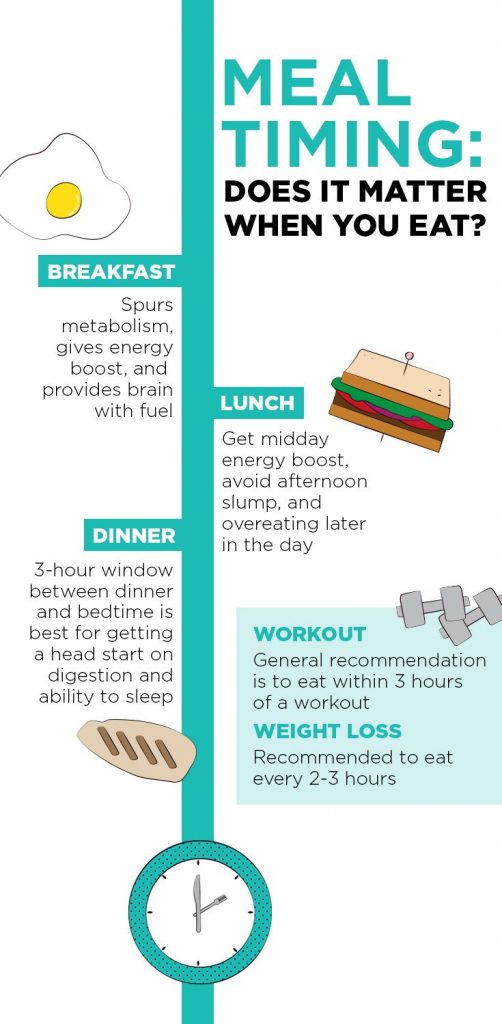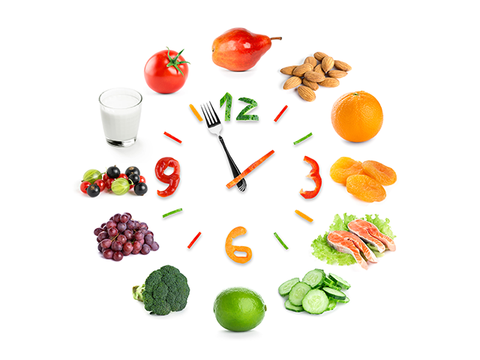Meal Timing: Does it Matter When You Eat?
There has been a lot of debate around the timing of your meals and whether it affects weight loss and performance. Many things have come into consideration, from circadian rhythm ideas around our body clock being aligned with the sun to intermittent fasting, suggesting us to only eat in a four to eight hour window during the day. There is so much information out there that it can make it difficult to decide what is right for you. Many studies have given us valuable insight into eating patterns so we can make informed decisions, but everyone is unique so we suggest a trial and error approach.
We will dive into the plethora of information around meal timing to allow you to decide what is best for you as well as what has worked for others. Many people say calories in versus calories out is the best way to look at it, as long as you are eating less than you are expending you will lose weight. And even more so, if you are eating the right amount of quality food you will build muscle. But there is truth behind the ideas around meal timing so let’s jump into the research.
Scientific Research Around Meal Timing
In regards to weight loss, multiple studies have shown specific value around meal timing and eating portions. Most significantly, this study of U.S. and Canadian citizens by the Journal of Nutrition found eating less than three meals a day will increase weight loss and overall health as well as eating your largest meal for breakfast.

This study shows our current cultural ideas around eating are incorrect and the amount that we indulge in North America is affecting us negatively. It is not around specific times but the amount you consume during specific parts of the day can help you lose weight.
In regards to timing, another study conducted by the Journal of Nutrition confirmed that our circadian rhythms, metabolism and nutrition are linked. We learned that consuming late meals influences circadian rhythms in humans. Plasma glucose, as well as adipose PER2 markers, responsible for metabolism, are both delayed by late meal timing. Furthermore, it explains that if the exact same meal is consumed in the morning and evening — there is a 25–50% greater insulin response at night. This again suggests that eating a larger meal in the morning is beneficial for weight management — especially if consuming carbohydrates.
From these studies we have learned that it is best to consume the most amount of calories earlier in the day so your body has to use them as fuel and they are not spiking your insulin levels late at night.
Are Calories All the Same?
Technically, Yes. The higher nutritional quality, think fruits, veggies, nuts, the better the calories. And eating excessive calories, regardless of the time, will leave you overweight. So we want to emphasize the importance of not overeating and eating good foods that fuel your body. But as the research confirms, there is a formula that can help increase your weight loss and help you feel better.

Therefore, while eating after 8 PM may not be the biggest sin in the dieting world, devouring bits of this and that throughout the day and not having clearly divided meals could be a deal breaker in the story — and not only for your looks but for your health as well.
How Should You Time Your Meals
Give clearly cut, defined meals a try as well as incorporating your biggest meal in the morning, fill it up with carbohydrates and healthy fats to keep you full throughout the day. What science has shown us is that snacking is not good for our metabolism and our circadian rhythm controls the metabolism, and it likes to burn its full earlier in the day rather than during sleeping.
So, time your meals and see where it brings your fitness journey, you will be better of utilizing this information.
